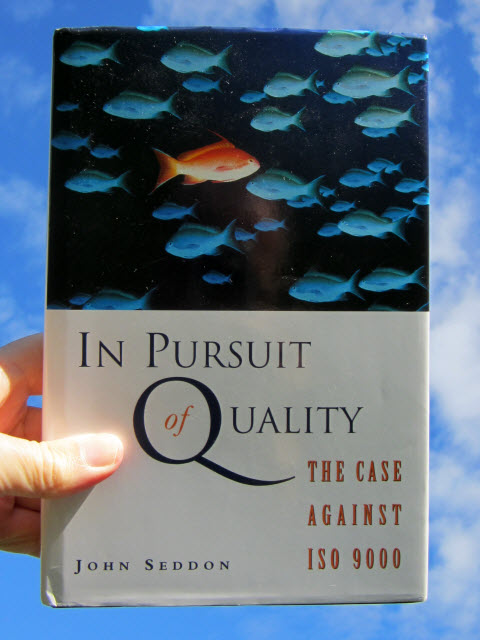This is a post in my series on organizing ”between and beyond.” Other posts are here. This is a retrospective of what has happened during the week. The purpose is to reflect on the work itself. Here is my previous retrospective. Here is my next retrospective.
What has happened? What needs to be done?
This week, I’ve read John O’Donohue’s book Anam Ċara. Here is my review. John O’Donohue writes that it’s very difficult to bring the world of work and the world of soul together. I’ll explore this further in the coming weeks.

I’ve also read Doug Kirpatrick’s Beyond Empowerment: The age of the self-managed organization, and John Seddon’s In Pursuit of Quality: The Case Against ISO 9000 this week.
Doug Kirkpatrick’s book is about self-management, which interests me, but the format—an imagined story—didn’t work for me. Chapter Eight: Self-Management Comes to the Organization is worth reading. I’ll come back with more on this.

John Seddon’s book In Pursuit of Quality: The Case Against ISO 9000 gives an interesting perspective on ISO 9000 and its history. The message is that management by command-and-control must be replaced by managing the organization as a system. The main arguments are repeated over and over again throughout the book. The last chapter contains a final review of the arguments set out in the first chapter. It’s a repetitive reading.

I agree with much of what John Seddon is says, but I don’t think he goes far enough in his argumentation. Yes, management by command-and-control treats people as cogs in a machine, but managing the organization as a system is still like treating the organization as a machine. The case against ISO 9000 can actually be extended to include Lean and Six Sigma as well. John Seddon criticizes Lean in these books.
Here is also a post on the historical parallels which Bob Emiliani sees between Scientific Management and Toyota Management. Again, it becomes evident that the focus is on technical aspects, while human aspects are largely ignored.
Living dynamics cannot be ignored in a living company.
Living organisms have an adaptive intelligence. External force may be used, but the organism will rebel as soon as the force is removed. Here is a post on Norm Hirst’s distinction between machines, which are allonomic, and organisms, which are autonomic.
Finally, here is an article by Paavo Pylkkänen where he discusses David Bohm’s interpretation of quantum theory, including mind and matter. David Bohm went as far as to say that electrons have a ”primitive mind-like quality.” Maybe it is not so surprising then that a very complex aggregate of matter is accompanied by a mind that guides it? This certainly goes against the prevalent mechanistic way of thinking!
What was good? What can be improved?
I’m making progress. I’d like to spend more time on this work than I can today.
Related posts:
Organizing in between and beyond posts
Leave a Reply
You must be logged in to post a comment.